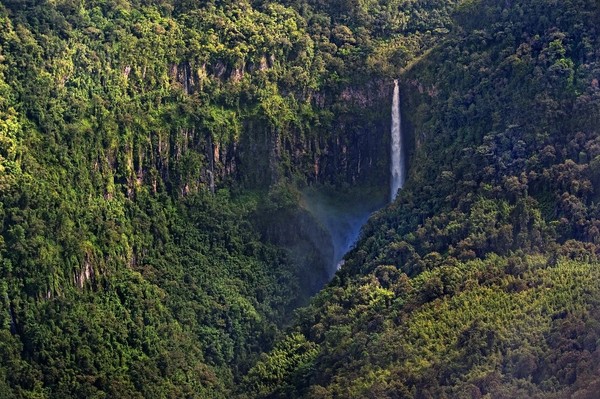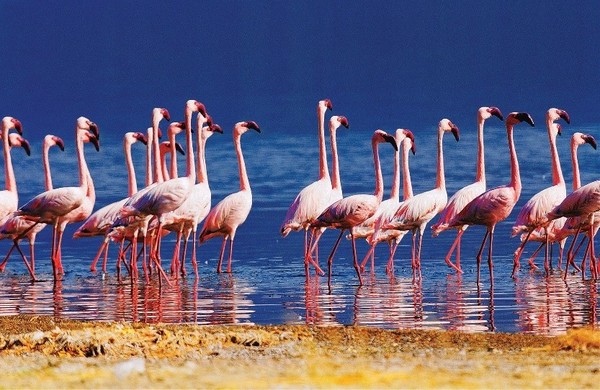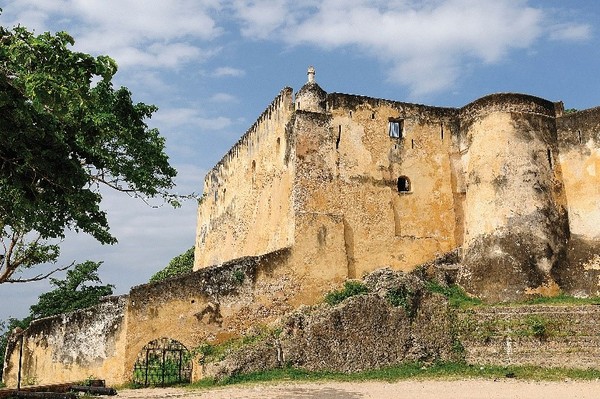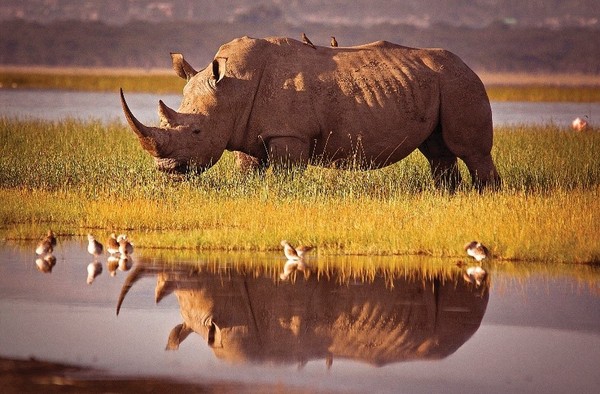Interview with Cabinet Secretary Mme. Monica Juma of Energy, Petroleum & Mining of Kenya
By Publisher Lee Kyung-sik with Editors Joy Cho, Kevin Lee
The Korea Post media, publisher of 3 English and 2 Korean-language news publications recently had an interview with the visiting Cabinet Secretary
Madam Monica Juma of Energy Petroleum & Mining of Kenya during her visit to Seoul on May 6, 2022. Details of the interview follow:
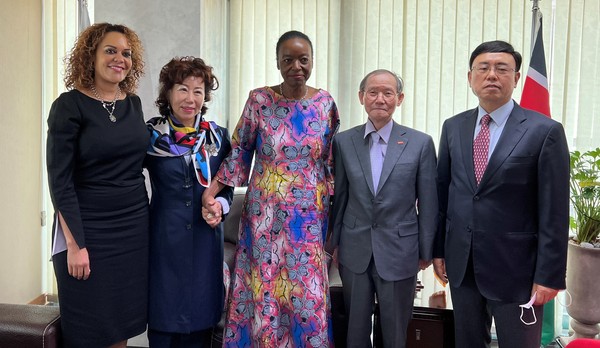
Objective of the interview:
To observe the policy direction of bilateral cooperation in energy sector, Kenya’s energy transition and partnership possibilities with Korea, investments opportunities for Korean companies and vice versa
Question: What are the objectives of this visit?
Answer: The objective of the visit is for the Cabinet Secretary to reiterate Kenya’s commitment in bilateral engagement and strengthen cooperation in energy sector. Kenya aims to strengthen and stabilize the national electricity grid network, a process that will require significant investment both on the distribution and transmission side. Other key areas of focus include; energy-climate change nexus, green energy transition, energy mix diversification (source diversification) for security of supply, development of off-shore wind, integration of variable renewables into the grid, capacity development in off-shore wind, scaling down fossil-based fuels power plants, improving affordability and reliability to end users, waste to energy, vehicles assembly for electric vehicles, use of liquified natural gas (LNG) as a transitional fuel.
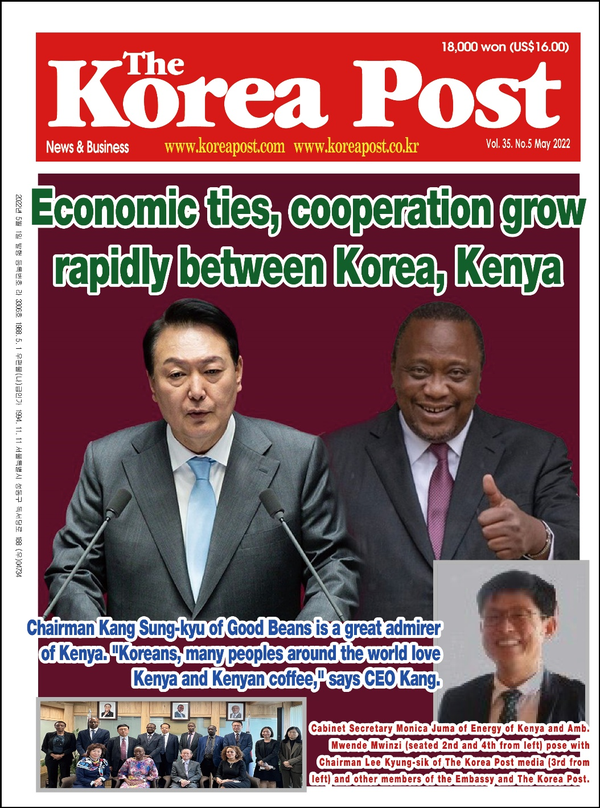
Q: How is Kenya planning to tackle Energy Crisis
A: Energy diversification--Kenya intends to invest in various sources of energy generation including investments in renewable energy sources such as geothermal, solar, wind, hydro, tidal and wave among others to enhance sustainable energy security;
Adopt innovations in energy storage including Green Hydrogen to increase the penetration levels of renewable energy and stabilization of the national electricity grid;
Adoption of e-mobility to reduce over-reliance on fossil fuels and accelerate energy transition in the transport sector; and Transformation of energy institutions to bolster efficiency and to enable them deliver smart energy services to the country.
Kenya is committed to attain universal access to electricity by 2026 and to clean cooking by 2028. The last mile connectivity to public institutions and far flung homesteads is an example of such projects. Appropriate policies and strategies have been formulated to enable the country attain the foregoing aspirations including enhanced energy efficiency and conservation and through the Kenya National Electrification Strategy (KNES) strategies among others.
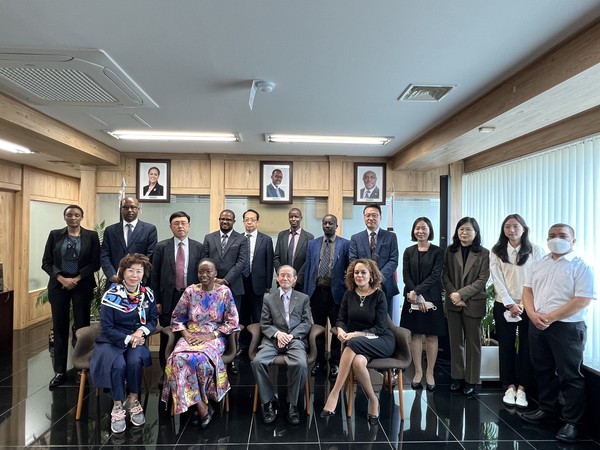
Q: Sources say that Kenya has plans to build commercial nuclear reactors near Kilifi, North of Mombasa to commission first reactor by 2026 considering energy challenges. What are the possibilities.
A: There is a possibility and especially with advent of Small Modular Reactors (SMRs) and the push for energy transition for climate change mitigation, nuclear being clean energy. The Kenya Nuclear Programme roadmap envisages that the first SMR construction will begin in the year 2028 and end in the year 2034. This will be followed by Start Up Tests beginning in the Year 2035 to 2036.
Q: Can you tell us about Kenya’s Policy on Green Hydrogen Sector?
A: Kenya is one of the countries with high shares of renewable energy in its energy mix. Renewable Energy accounts for 73 % of Kenya installed electricity capacity and 93 % of the final electricity generation and dispatch.
It is in this background that we have started the green hydrogen development programme. The purpose of the programme, is to come up with a roadmap, strategy, policy and regulatory framework on the production of green hydrogen to use the extra capacity in the grid especially at night during the low electricity demand in the short to medium term.
Kenya has started the programme by undertaking the baseline study on potential for Power to X technologies and green hydrogen and has identified the following industrial pathways to further pursue the use of green hydrogen. Hydrogen as an energy carrier for selected transport (mobility) options.
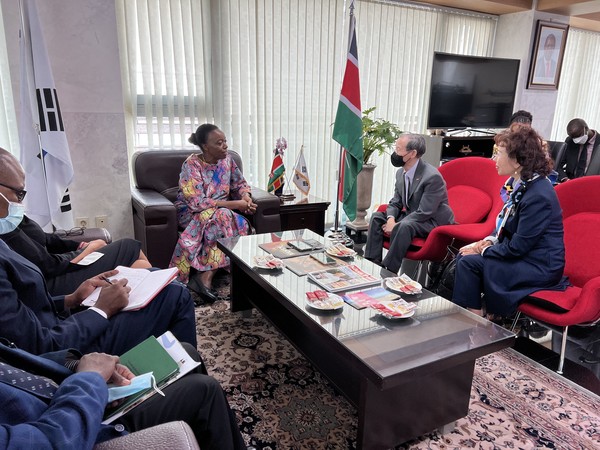
Hydrogen or methanol/ammonia as an energy carrier for off-grid supply of isolated grids:
Hydrogen as a commodity and energy carrier for larger scale uses in new technologies with an industrial shift e.g. for green domestic steel production for local and regional demand.
Hydrogen as a commodity for the production of the nitrogen content of fertilizers, via ammonia.
Hydrogen and its derivatives such as ammonia or methanol as a higher priced commodity for existing and new regional industrial processes
A well-structured approach is being worked on for a successful and efficient development of a green hydrogen market.
This includes: A green hydrogen strategy leading to a reliable and comprehensive policy and regulatory framework. Pilot projects and research projects of different sizes.
Building up expertise in the country (Research, Development & Innovation, and education).
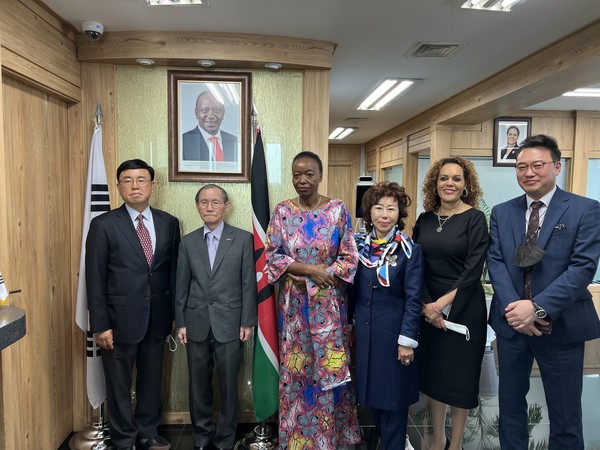
Q: How can Kenya and Korea strategically cooperate in energy and engineering procurement construction (EPC) sector?
A: Energy: Capacity building and technology transfer in new trends in renewable energy and green hydrogen.
Engineering, Procurement and Construction (EPC)
The following are among the opportunities Kenya and Korea can engage in Energy EPCs:
Smart Grids--Kenya Power to work closely with KEPCO and other smart grid suppliers in Korea to modernize Kenyan power grid system and reduces system losses.
Transmission and Distribution of Electricity – Kenya working together closely with KEPCO as the electric power system expands
Nuclear Energy – Kenya plan to have its first nuclear power plant before 2040 and currently working on the technical and legal framework with guidance of International Atomic Energy Agency (IAEA). Korea has been a leader in Nuclear power development and it is an area that the two countries can continue cooperating.
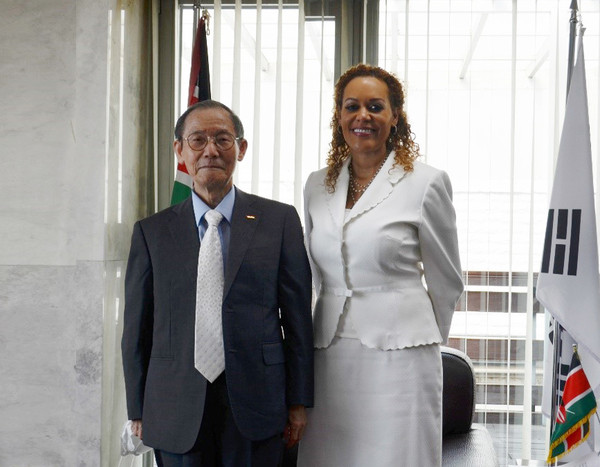
Geothermal Energy--Korean company Hyundai was the EPC contractor for Olkaria IV Geothermal Power plant. As Kenya continue to invest and develop geothermal power and expand in the region, (currently working in Ethiopia and Djibouti), it will give Korean companies more opportunities not only on Kenya but the region.
Resume of Secretary Madam Monica Juma:
Dr. Monica Juma is the Cabinet Secretary in the Ministry of Energy of the Republic of Kenya. She oversees the execution of the mandate of the Ministry, which entails provision of clean, sustainable, affordable, reliable and secure energy services for national development while protecting the environment.
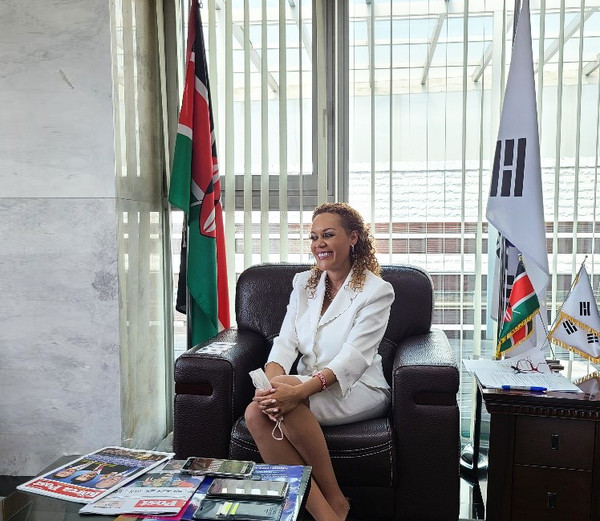
Dr. Juma joined the Ministry of Energy from the Ministry of Defence where, as Cabinet Secretary, she oversaw the Ministry’s constitutional mandate, to defend and protect the sovereignty and territorial integrity of the Republic of Kenya. In this capacity, she was Principal Advisor of the President and the National Assembly on any matter relating to the Defence Forces, was a member of the National Security Council, in-charge of the overall Defence policy formulation, guidance and implementation, and chaired the Defence Council which is responsible for overall control, policy and direction of the Kenya Defence Forces. Dr. Juma was also the Chair of the Contact Group on Piracy off the Coast of Somalia (CGPCS), 2020-2021, an international governance mechanism established in New York on January 14, 2009 to facilitate the discussion and coordination of actions among states and organizations to suppress Somali piracy.

Dr. Juma was appointed to the Ministry of Defence from the Ministry of Foreign affairs, where she served first as Principal Secretary (2016-2018) and then as Cabinet Secretary (2018-2020). During her stint at the MFA, Dr. Juma led Kenya’s diplomatic corps in projecting, promoting, protecting and pursuing the national interests of the Republic of Kenya across the world. During her tenure Kenya become an undisputed and much sought after thought and demonstrative leader on critical agenda at the regional, continental and global level. In 2018, Dr. Juma was elected to Chair the Commonwealth Ministerial Action Group for a year (2018-2019).

Before serving at the helm of Kenya’s diplomacy, Dr. Juma was the Principal Secretary in the Ministry of Interior and Coordination of National Government (2014-2015). In the interior docket, she drove transformation and reforms in the national security from the policy, architecture and operations at the National Administration, to the Immigration and Registration of Persons departments, as well as the National Police Service. She also initiated work that led to the development of Kenya’s strategy on Counter Terrorism and Violent Extremism and the creation of the multi-agency approach in tackling security challenges, in general, and terrorism in particular. Collectively, these measures significantly reduced Kenya’s vulnerability to terrorist attacks and restored security across the country.
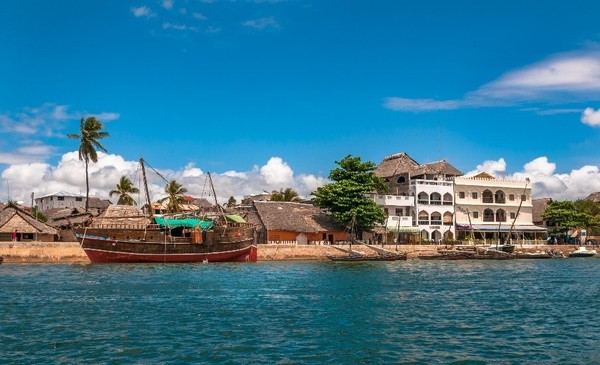
Prior to being at the Ministry of Interior and Coordination of National Government, she was the Principal Secretary in the Ministry of Defence (2013-2014) where she was instrumental in strengthening the business process systems within the Ministry, clarifying the defence strategic orientation and bolstering the professional stature of the Kenya Defence Forces.
Dr. Juma came to the top Executive of Government from serving as Ambassador Extra-Ordinary and Plenipotentiary of Kenya to Ethiopia and Djibouti, and Permanent Representative of Kenya to the African Union, the Inter-Governmental Authority on Development (IGAD) and United Nations Commission for Africa (UNECA), between June 2010 and July 2013. Among the key efforts during this time was the negotiations for the re-hatting of the Kenya Defence Forces into the African Mission in Somalia (AMISOM).

She joined government with a depth of experience in research and policy analysis accumulated from working for various continental and international think tanks, including the International Peace Academy, SaferAfrica, and the African Institute of South Africa. She also served in the United Nation’s Secretary General’s (UNSG) High Level Panel on Resourcing African Union led, UNSC mandated peacekeeping missions (otherwise known as the Prodi Report 2008), and consulted for many UN Agencies, the African Union and its agencies, in particular NEPAD on matters of security, peace, governance and development.
Dr. Juma has strong academic credentials, having served as a lecturer in the Department of Government and Public Administration and Research Director at the Centre for Refugee Studies, both at Moi University, Eldoret. She began her work experience as a Management Analyst in the Department of Personnel Management--Office of the President, where she focused on organizational development within the public service.
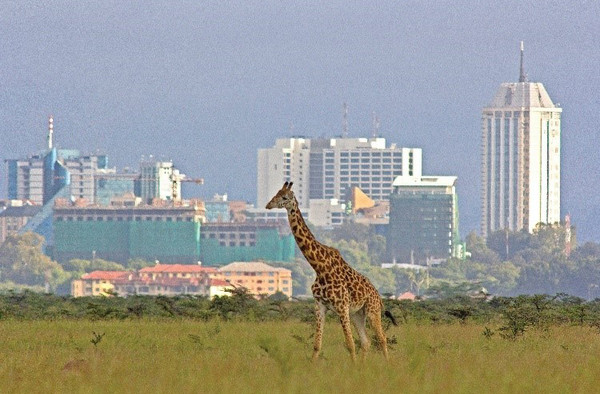
Dr. Monica Juma is well published in security and peace studies. She holds a number of academic qualifications: A Bachelor of Arts Degree and Master of Arts Degree in Government and Public Administration from the University of Nairobi; a Certificate of Refugee Studies and a Doctor of Philosophy in Politics from the University of Oxford.
